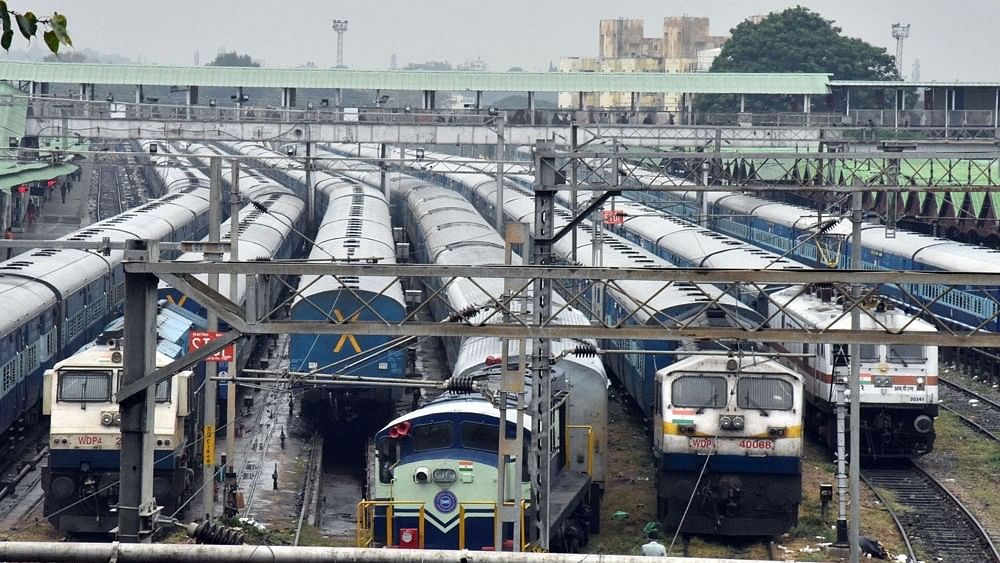
Image showing trains belonging to Indian Railways.
Credit: PTI File Photo
Indian Railways has earned an additional revenue of more than Rs 2,800 crore from child travellers in the last seven years by revising child travel fare norms, an RTI response has found.
The response from the Centre for Railway Information Systems (CRIS) under the Right to Information (RTI) Act further indicates that the financial year of 2022-23 alone earned Rs 560 crore due to the amended norms making it the most profitable year.
CRIS, an organisation under the Ministry of Railways, provides IT solutions in core areas such as ticketing and passengers, freight services, train traffic control and operations, among others.
On March 31, 2016, the ministry announced that the railways would charge full adult fare for children of age 5 years and under 12 years if they opted for separate berths or seats in a reserved coach. The revised norm was made applicable from April 21, 2016.
Earlier, the railways used to offer separate berths to children between 5 and 12 years while charging only half the travel fare.
Though children of the said age group have been allowed in the revised norm to travel at half the fare, they don't get separate berths or seats and they have to be accommodated on the seat of the adult with whom they are travelling.
The CRIS has provided the year-wise data in a tabular form from the financial year of 2016-17 to 2022-23 of two categories of children based on their fare options.
The data shows that in these seven years, over 3.6 crore children travelled paying half fare without opting for a reserved seat or coach. On the other hand, over 10 crore children opted for a separate berth/seat and paid full fare.
'The response also suggests that out of total children who travel by the railways, about 70 per cent prefer to pay full fare and get a berth or seat,' Chandra Shekhar Gaur, the RTI applicant, said.
He added, 'In a long distance journey, it is very painful for both the child and the adult to use one berth or seat. The revision of norms has turned out to be a windfall gain for the railways.'
Gaur said the data also shows that the Covid pandemic played a spoilsport as the year 2020-21 earned only Rs 157 crore due to the revised norm making it the least profitable year.